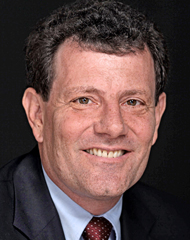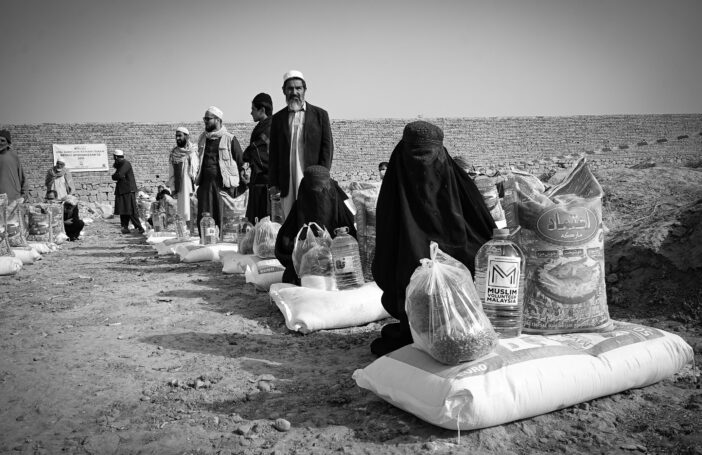In a recent New York Times article enthusing about the state of contemporary development economics, Nicholas Kristof aired some regrets over the choices he made as a younger man.
When I was in college, I majored in political science. But if I were going through college today, I’d major in economics. It possesses a rigor that other fields in the social sciences don’t — and often greater relevance as well. That’s why economists are shaping national debates about everything from health care to poverty, while political scientists often seem increasingly theoretical and irrelevant.
This in turn had Owen Barder asking whether development economists have “all the best tools?”
Economists might have the best tools (having borrowed them from statisticians and medical researchers), but many of the most interesting questions of development fall squarely within the domain of political science. Why are some countries better governed than others? What factors lead to democratic reforms? How do trust and institutions effect collective action?
And, although no one has sent the memo to Nicholas Kristof yet, political scientists are increasingly asking and attempting to answer these questions.
Recent research by political scientists on aid is a good example of this. As with development issues more generally, aid is clearly an area where politics, in both developing and developed countries, matters. Last year saw research from Joseph Wright (gated link here) which suggests that the effectiveness of aid in promoting economic development varies depending on how personalist the politics of aid recipient countries are. While work by Simon Dietrich has examined whether donors give different types of aid depending on the quality of governance of recipient countries. Her findings provide evidence to suggest that some donors do indeed do this: giving less money to recipient country governments and more to non-state actors when governance was poor. Importantly, she also provides evidence suggesting that by doing this donors are making their aid more effective in reducing poverty.
Dietrich now has an excellent new paper out in Volume 39 of World Development examining the impact of corruption on the efficacy of health aid (gated link here)
She argues that, because the opportunities to extract lucrative rents from health aid are fewer than with other types of aid, such aid may be delivered successfully even in the most corrupt of countries. With fewer rents to be tapped into, the benefits for corrupt elites of appropriating health aid are relatively few and outweighed by the potential gains associated with letting such aid work. Gains such as placated donors, increased international legitimacy, and ongoing flows of other types of aid.
Dietrich then tests her theoretical arguments by regressing health aid (or, at least and instrumental variable which proxies for health aid) against vaccination rates (specifically the rate of diphtheria–tetanus–pertussis vaccinations) while controlling for a range of potential confounding factors.
Her findings are striking: in highly corrupt countries health aid is strongly associated with higher vaccination rates. And, because instrumental variables have been used, it is likely that this association is causal: more health aid leads to more vaccinations.
However, in better governed countries the impact of health aid on vaccination rates decreases until it actually becomes negative in the (relatively few) developing countries that are well governed.
This is a fascinating finding, and Dietrich claims it as evidence to support her theoretical argument regarding the aid-related calculations of political elites.
The importance of these results isn’t merely academic: if Dietrich is correct then donors should be paying serious attention to the governance context of the countries they are giving aid to and then using this to dictate their aid focus.
Unfortunately, in this instance, I don’t think that Dietrich’s empirical evidence necessarily supports her theoretical argument. Specifically, there appears to be another explanation for the pattern she unearths. One I think to be more plausible.
The explanation is as follows. In highly corrupt countries donors make more frequent use of projects and other non-state aid delivery mechanisms (which you’ll recall is essentially the finding of the other Dietrich paper I linked to). And if vaccinating babies in developing countries is your objective (remember this was her measure of health aid efficacy) using projects and working outside the state is almost always going to be more effective. This explains why health aid has its highest impact on vaccination rates in the worst governed countries: in these countries donors are giving aid in ways that are particularly effective for delivering vaccinations.
In better governed developing countries, however, donors increasingly divert their health aid through recipient governments. Here the focus has broadened: donors may still want to improve immediate health outcomes but, more importantly, they also are also typically seeking to build physical and bureaucratic health infrastructure. In the long run well functioning hospitals and well run health ministries are essential for better health so it makes sense for donors to focus aid dollars on such infrastructure, if they can be confident that it works. Assuming it works (and in better governed developing countries this assumption, while questionable, is not outlandish) the trade-off – fewer vaccinations in the short run – would be worth it. It is still a trade-off though. Every dollar spent on health ministry strengthening is a dollar that could have been spent on a vaccination. And in the short term this trade-off offers what I think to be a more plausible explanation for the pattern that Dietrich finds. The impact of aid on vaccinations becomes less in better governed countries because less aid is delivered through means optimal for vaccinating kids.
Having said all this, I should stress that I could be wrong and Dietrich could still be right (and given the quality of her work I’d have to say the odds are quite probably in her favour). And even if it is Dietrich whose got it wrong here, hers is still an important paper reinforcing an essential point: whether through trade-offs, or political economy, or other factors altogether, different types of aid are likely to work differently in different contexts. By digging through disaggregated data Dietrich has done an excellent job of showing this.
Nicholas Kristof, your college years weren’t wasted: political science has the potential to unearth much that is relevant to aid and development work, and political scientists are already out there digging.
Terence Wood is a (political science) PhD student at ANU. Prior to commencing study he worked for the New Zealand government aid programme.






Hi Alex,
Thanks for your comments. I agree: econ has got the jump on the other social sciences when it comes to forcing their students to learn quantitative methods. Although, nowadays there are definitely very strongly quant oriented sociology and pol-sci departments around, particularly in the US, which are equally capable of teaching such knowledge.
IMHO, the optimal space for political science to be in would be teaching these methods, and teaching their shortcomings, and maintaining the best of the qualitative stuff. Economics is strong on the quantitative side of things but it is also, I think, hamstrung somewhat by an excessive focus in this direction.
Thanks for your comment.
Terence
I am a political science graduate and I have felt the same as Kristof for many years.
But the reason that an economics degree would have helped me more that poli sci is not its subject matter but its methods.
The economics students were forced to complete statistics and quatative methods classes.
In contrast I graduated without ever having used a graph or chart or table in any of my essays or assignments. not one.
I have managed to pickup a fair knowledge of economic theory through osmosis, but I am still woefully underqualified in the most effective tools for assessing complexity.
The solution is rather simple: political science courses need to start teaching analytical tools and quantative methods. This will undercut the current monopoly that economists have on this method and inject some much needed rigour into political science.